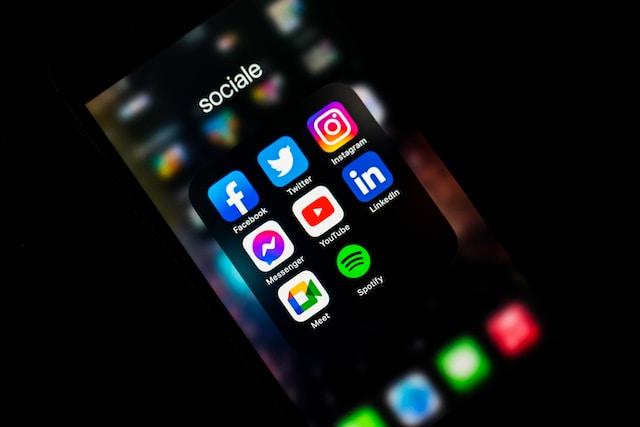
In today's fast-paced digital age, social media has become an integral part of our lives. With billions of active users across various platforms, it presents a massive opportunity for businesses and individuals to reach and engage with their target audience. However, managing multiple social media accounts and posting content consistently can be challenging and time-consuming. This is where Social Media Scheduling Apps come to the rescue, empowering users to streamline their social media efforts efficiently.
I. Key Features of Social Media Scheduling Apps
A. Content Calendar Management
One of the core functionalities of social media scheduling apps is their ability to organize and schedule posts in advance. Users can plan their content strategy and choose the best times to publish their posts, ensuring maximum visibility and engagement. Additionally, these apps often come with time zone optimization features, enabling global brands to cater to their diverse audience across different regions. Furthermore, businesses and social media managers can manage multiple accounts from a single dashboard, simplifying the process and enhancing productivity.
B. Content Creation and Editing Tools
To make the most impact on social media, content needs to be visually appealing and well-crafted. Social media scheduling apps offer a range of content creation and editing tools, such as image and video editing functionalities. Users can customize their posts with filters, stickers, and overlays, giving their content a professional and eye-catching appearance. Moreover, these apps often provide suggestions for captions and hashtags, assisting users in optimizing their content for maximum reach and engagement. Additionally, link shortening and tracking features help users monitor the performance of their shared links effectively.
C. Analytics and Performance Tracking
Data-driven decision making is crucial in social media marketing. Social media scheduling apps come equipped with analytics and performance tracking tools, providing valuable insights into post engagement metrics, follower growth analysis, and the best times to post. These analytics enable users to assess the effectiveness of their social media strategies, identify trends, and optimize their content for better results. Understanding what resonates with the audience can significantly boost the overall performance of social media campaigns.
D. Team Collaboration and Approval
For businesses with a dedicated social media team, collaboration and approval processes are vital. Social media scheduling apps offer features that facilitate seamless teamwork, such as assigning different user roles and permissions. Team members can collaborate on content creation, plan campaigns, and access a shared content calendar. Additionally, workflow management capabilities streamline the approval process, ensuring that all posts meet the brand's guidelines and standards before publishing.
II. Popular Social Media Scheduling Apps
A. App 1
App 1 is a top-tier social media scheduling app known for its user-friendly interface and comprehensive features. Its content calendar management allows users to schedule posts across various social media platforms, including Facebook, Twitter, Instagram, and LinkedIn. With its intuitive drag-and-drop functionality, managing multiple accounts becomes effortless.
The content creation and editing tools in App 1 are exceptional, providing users with a wide range of filters, fonts, and templates to elevate their content quality. The app's built-in analytics dashboard offers detailed insights into post performance, audience demographics, and competitor analysis.
Pros:
1. Easy-to-use interface for beginners and professionals alike.
2. Robust content creation and editing features.
3. Comprehensive analytics for data-driven decision making.
Cons:
1. Limited access to some advanced features in the free version.
2. Integration with certain platforms may require an additional fee.
B. App 2
App 2 has gained popularity among social media marketers for its extensive integration capabilities. It supports numerous social media platforms and also offers integration with popular content creation tools and stock image libraries. With App 2, users can efficiently manage their social media presence and create visually stunning posts without leaving the app.
The app's analytics and performance tracking features are commendable, providing detailed insights into post reach, engagement, and follower growth. Additionally, its team collaboration features enable seamless communication and content approval processes, making it an excellent choice for businesses with a dedicated marketing team.
Pros:
1. Extensive integration options for a seamless workflow.
2. Robust analytics and reporting capabilities.
3. Strong team collaboration features.
Cons:
1. Learning curve for new users due to its wide array of features.
2. Premium plans might be expensive for small businesses or individual users.
C. App 3
App 3 stands out for its focus on automation and AI-driven content optimization. The app's content calendar management is highly efficient, allowing users to schedule posts in advance and automate posting at optimal times for maximum reach and engagement. Its AI-powered content creation tool assists users in generating creative captions, hashtags, and even image suggestions, saving time and effort in the content creation process.
The app's analytics and performance tracking features offer real-time data on post performance, audience behavior, and hashtag analysis, empowering users to fine-tune their social media strategy continually.
Pros:
1. Powerful automation and AI-driven features.
2. Streamlined content creation process.
3. Real-time analytics for agile marketing decisions.
Cons:
1. Limited integrations with certain niche platforms.
2. Advanced features might be overwhelming for some users.
III. Benefits of Using Social Media Scheduling Apps
A. Time Management and Efficiency
By using social media scheduling apps, businesses and individuals can save a significant amount of time. With the ability to plan and schedule posts in advance, users can allocate specific time slots for content creation and strategizing, rather than continuously engaging with social media throughout the day. This time-saving aspect allows marketers to focus on other critical aspects of their marketing efforts, such as audience research, campaign planning, and measuring results.
B. Consistency in Posting
Consistency is key to building a strong presence on social media platforms. Social media scheduling apps enable users to maintain a consistent posting schedule, even during busy periods or when the social media manager is not available. Regular and timely posts keep the audience engaged and build trust, leading to higher brand loyalty and an increase in followers.
C. Audience Engagement and Reach
Understanding the best times to post and tailoring content to resonate with the target audience is essential for maximizing engagement and reach. Social media scheduling apps provide valuable insights into audience behavior and post performance, helping users make data-driven decisions to enhance their social media strategy. By analyzing these metrics, marketers can adjust their posting schedule, optimize content, and leverage trends to boost engagement and reach.
D. Data-Driven Decision Making
Successful social media marketing is rooted in data-driven decision making. Social media scheduling apps offer in-depth analytics and reporting, giving marketers access to valuable data on post performance, audience demographics, and competitor analysis. By leveraging this data, businesses can refine their marketing strategies, identify areas for improvement, and optimize their social media content for better results.
IV. Considerations When Choosing a Social Media Scheduling App
A. Pricing and Plans
When choosing a social media scheduling app, it's essential to consider the pricing and available plans. Some apps offer free versions with limited features, while others provide premium plans with advanced functionalities. Businesses should assess their budget and requirements to select a plan that best suits their needs.
B. Platform Compatibility
Not all social media scheduling apps support all platforms. It's crucial to ensure that the chosen app integrates seamlessly with the platforms where the brand maintains a presence. Popular platforms like Facebook, Twitter, Instagram, and LinkedIn should be well-supported.
C. User Interface and Ease of Use
The user interface plays a significant role in the overall user
experience and efficiency. A user-friendly and intuitive interface makes it easier for marketers to navigate through the app and utilize its features effectively. A demo or trial version of the app can be beneficial to assess whether the interface aligns with the team's workflow and requirements.
D. Customer Support and Training
Customer support and training are crucial factors, especially for businesses transitioning to a new social media scheduling app. It's essential to select an app that provides reliable customer support and readily available resources like tutorials, guides, and FAQs. Having access to training materials ensures that the team can quickly adapt to the app and use it to its full potential.
V. Tips for Effective Social Media Scheduling
A. Understand Your Target Audience
Knowing your target audience's preferences, interests, and behavior is the foundation of a successful social media strategy. Conduct thorough audience research to understand what type of content resonates with them the most. Utilize the data from social media scheduling apps' analytics to gain insights into audience engagement patterns and adjust your strategy accordingly.
B. Utilize Analytics and Insights
Make the most of the analytics and insights provided by the social media scheduling app. Regularly monitor post performance, follower growth, and engagement metrics to identify trends and areas for improvement. Analyze which posts received the most likes, comments, and shares, and use this information to create more content that aligns with your audience's interests.
C. Diversify Content Types
Variety is essential to keep your audience engaged and interested in your brand. Experiment with different types of content, such as images, videos, infographics, and blog links. Social media scheduling apps enable you to plan and schedule a mix of content types, ensuring that your feed remains dynamic and engaging.
D. Stay Updated with Trends and Events
Social media is fast-paced, and trends can change rapidly. Stay up-to-date with current events, holidays, and trending topics to leverage them in your social media content. Social media scheduling apps allow you to plan ahead and prepare content for timely posting during relevant events and trending discussions.
VI. Conclusion
In conclusion, social media scheduling apps have become essential tools for businesses and individuals seeking success on social media platforms. Their key features, such as content calendar management, content creation tools, analytics, and team collaboration, empower users to manage their social media presence efficiently. With the ability to plan and schedule posts in advance, businesses can maintain consistency and engagement, while data-driven decision making leads to a refined and optimized social media strategy.
When selecting a social media scheduling app, it's crucial to consider factors like pricing, platform compatibility, user interface, and customer support. Evaluating the available options and choosing the app that aligns best with the team's workflow and requirements will lead to a seamless and productive social media marketing experience.
By following the tips for effective social media scheduling, businesses can unlock the full potential of social media platforms, building a strong brand presence and engaging with their target audience effectively. Embracing social media scheduling apps as part of their digital marketing strategy will contribute to long-term success and a competitive edge in the dynamic world of social media marketing.


